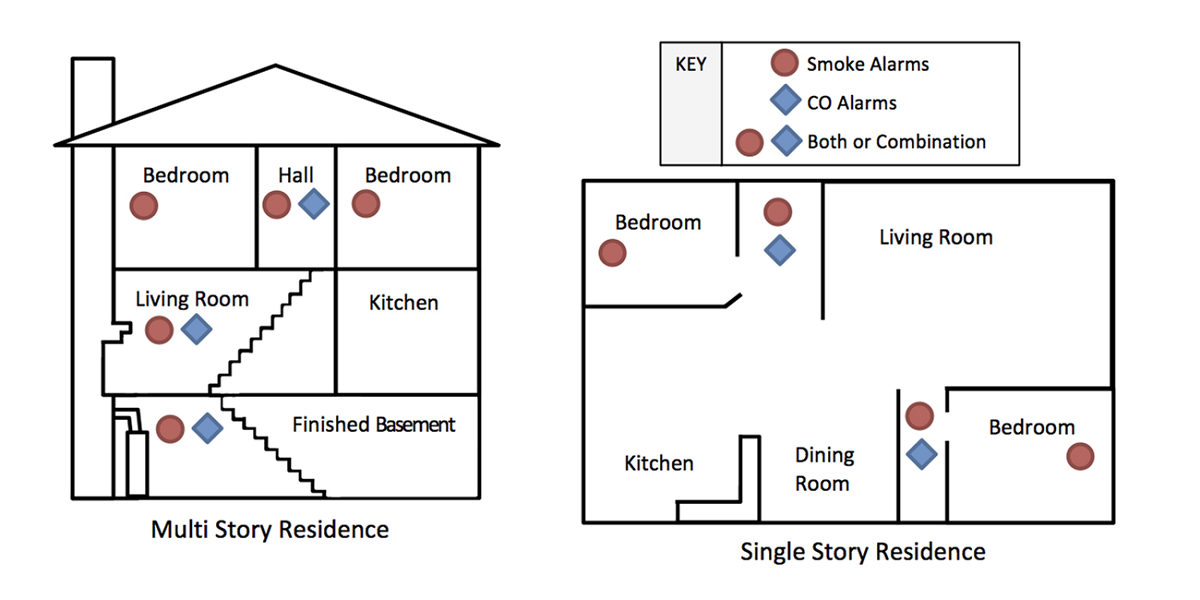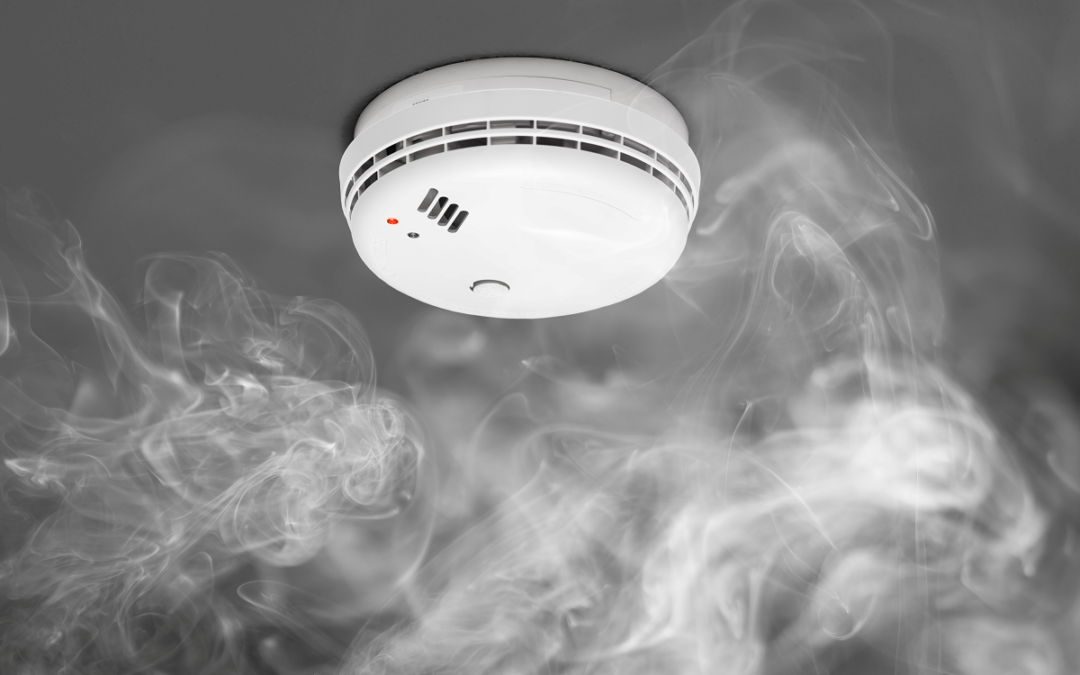4 Kinds of Smoke Detectors
Sadly 90% of smoke detectors in homes across the nation and likely in San Carlos CA too today are the old-fashioned type which may not go off in time to save you during a fire! That is a scary statistic! So, what are the three kinds of smoke detectors and how do they differ?
- Ionization smoke detectors have been around for a long time and monitor “ions” particles in the air. Smoke particles change the electrical balance of the air. These work fine when there is a raging fire present and may even work a little faster than the photoelectric type. These are the type of smoke detectors that are in about 90% of homes today. You can tell what they are because they have a lower case “i” on them plus will say “contains radioactive material” or have a radioactive symbol.
- Photoelectric smoke detectors use a beam of light and a light sensor. Smoke particles change the amount of light that reaches the sensor causing the alarm to sound. These are much better at detecting smoke in the air. This is important because sometimes you have a smoldering fire or smoke entering a room before the actual fire gets there, but you want the alarm to go off as soon as possible. These have a capital letter “P” and the phrase “photoelectric technology.”
- Hybrid smoke detectors that use both ionization and photoelectric technologies so that is get the best of both worlds when it comes to the alarm going off ASAP. These may make reference to a “dual sensor.”
- Smoke/Carbon Monoxide (CO) detectors are just that, detectors set up to warn if wither smoke or CO is present. The detector may have written on it that it’s both a smoke and CO detector. If you’re still unsure, then conduct an internet search of the detector’s model number and the name of the manufacturer; the product page or digital manual will indicate if it detects carbon monoxide. Key here is that you still want the smoke technology on this detector to be photoelectric.
If you talk to experts, they will tell you that hybrid detectors are your best choice for safety, but if you had to select just one, then go with the photoelectric detector.
California State Requirements for All Homes
California law requires that every ”dwelling intended for human occupancy” have smoke alarms. Smoke alarms need to be located in:
- the hallway outside the bedrooms
- in each bedroom and
- on every floor regardless of whether there is a bedroom on that floor.
CO Devices are also Required in Homes
Smoke alarms are not the only detectors required by law, there are also Carbon Monoxide Detectors! California law requires they be installed outside of each sleeping area. This typically means in the hallway near the bedrooms and also in each floor regardless of whether there is a bedroom on that floor. Wherever Co detector is required, then so is typical a smoke detector so these areas are perfect for a combination detector to be installed.

Detectors and Home Selling Requirements
If you’re selling your home, then you’re going to have to comply with these smoke and CO detector requirements. California requires that when a home is sold, that the seller has complied with both the CO and smoke detector requirements. San Carlos CA does not perform any safety inspection at the time of sale, but some Bay Area communities do. However, even in San Carlos CA you can’t get away without doing it because the appraiser for the buyer’s lender will check on the presence of the detectors and the lender will likely not fund the loan until all detectors are correctly installed.
Test Those Detectors
Some Detectors sold today typically have a 10-year sealed battery or they are hardware wired but will still have a backup battery. Most manufacturers recommend testing the detectors monthly. Even if you just bought a brand new detector with a 10-year battery, test it monthly anyway, those batteries can sometimes go bad almost immediately.
More Info
To learn more about the author visit: https://sancarloslife.com/best-realtors-in-san-carlos-ca/
To find some of the best San Carlos CA real estate agents visit https://www.vabrato.com/about-us/
